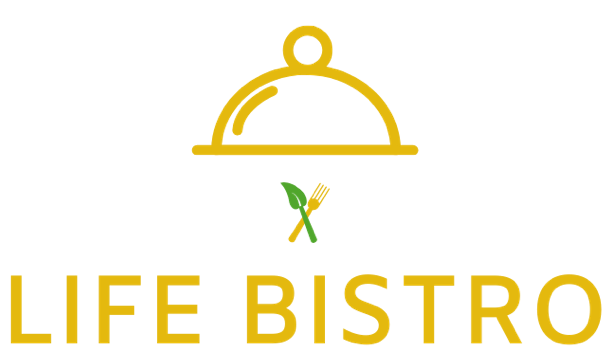Have you ever wondered why some fail on a vegan diet while others fail? The journey to a plant-based lifestyle can be exciting and challenging, with numerous factors influencing success or failure. So, we’ll unveil the secrets behind these differing experiences and provide valuable insights to navigate your vegan journey confidently and easily.
Not eating enough food and eliminating animal foods without replacing them can lead to fatigue, irritability, weight loss, and nutrient insufficiencies, which is the answer to the question, “Why do people fail on a vegan diet while others succeed?”
Whether you’re a seasoned vegan or just starting your plant-based adventure, understanding the complexities of veganism and adopting a multifaceted approach can make all the difference. From nutrition knowledge and individual physiology to psychological factors and meal planning, join us as we explore the many elements contributing to failing at a vegan journey.
Key Takeaways
- Gain knowledge and understanding of veganism to reap its benefits.
- Set goals, stay motivated, and build a supportive network for long-term success.
- Embrace the challenges & rewards of a plant-based lifestyle for health, environment & animals!
Introduction – Why Do People Fail on a Vegan Diet While Others Succeed
Veganism has gained popularity in recent years due to ethical reasons, environmental concerns, and the potential health benefits of a plant-based diet. However, individual experiences can vary greatly within this lifestyle. However, while some thrive, others struggle to maintain a vegan lifestyle. So, what sets the successful vegans apart from those where people fail?
To address this, we’ll cover the core principles of successful veganism. Furthermore, we’ll explore the importance of proper nutrition, delve into the role of personal identity and mindset, highlight the significance of meal planning and preparation, discuss strategies for overcoming social pressures, emphasize the importance of building a supportive vegan community, and shed light on managing common nutrient deficiencies.
Understanding these aspects will better equip you to embrace a vegan lifestyle and enjoy its many benefits.

Understanding the Vegan Diet
Vegan diets involve the avoidance of all products derived from animals, including meat, dairy, eggs, and honey, resulting in a complete elimination of animal foods from your diet. This dietary choice can yield several benefits, including lower rates of heart disease, high blood pressure, and type 2 diabetes.
Moreover, it contributes to increased overall health and life expectancy. However, it’s essential to remember that while the primary motivation for many adopting a vegan diet is animal welfare and environmental concerns, a well-planned vegan diet is also nutritionally adequate and health-promoting.
Nevertheless, the path to success in adopting a vegan lifestyle isn’t always straightforward. Transitioning to vegan eating can present an exciting challenge with rewarding results, but it requires mindfulness regarding hidden animal products and awareness of essential nutrients and potential deficiencies.
Hence, armed with the right knowledge, support, and determination, one can overcome these challenges and reap the numerous benefits of a vegan lifestyle.
Core Principles and Motivations of Veganism
Veganism transcends being solely a diet; it represents a lifestyle choice to minimize animal harm and promote compassion. The motivations behind embracing this lifestyle are multifaceted. They encompass ethical considerations, such as animal rights and environmental concerns, focused on reducing the environmental impact of animal agriculture and health benefits, leading to improved overall health and a reduced risk of certain diseases.
Moreover, adopting a vegan diet and embracing veganism in daily life can significantly contribute to a healthier and happier existence. Comprehending diverse motivations can be instrumental in staying committed and effectively navigating the challenges that may arise.
Nutritional Foundations of a Vegan Diet
Despite a common misconception about vegan diets lacking essential nutrients like protein, iron, and calcium, a well-planned diet can indeed provide all the necessary nutrients for good health. This can be achieved by incorporating various nutrient-dense plant-based foods and fortified products, ensuring your body receives the required nourishment.
Moreover, for optimal nutrient intake, it’s crucial to be aware of potential deficiencies and ensure proper supplementation to maintain overall health and well-being.
In addition, consulting with a registered dietitian becomes essential as they can provide personalized dietary assessment and recommendations tailored to your specific needs. Armed with the right knowledge and resources obtained through this guidance, you can confidently embrace a nutritionally balanced and delicious vegan diet.

Factors Influencing Success and Failure in Vegan Diets
Having a thorough understanding of nutrition is crucial when following a vegan diet, as it significantly enhances your chances of success. This understanding involves being mindful of hidden animal products, essential nutrients, and potential nutrient deficiencies.
Moreover, individual physiology and genetics can notably impact success. Interestingly, individuals who adopted a plant-based diet primarily for health reasons and those who rapidly transitioned to vegetarianism were more likely to revert back to eating meat.
Additionally, psychological and emotional factors hold significant sway in the success of a vegan diet. These factors include maintaining a healthy relationship with food and body, finding a supportive community, setting goals, tracking progress, and reminding oneself of ethical and environmental reasons.
Furthermore, being open with friends and family about dietary choices can be instrumental in reducing feelings of isolation and cultivating a positive support network for sustaining a vegan lifestyle.
Nutrition Knowledge and Awareness
Nutrition knowledge and awareness play pivotal roles in ensuring a successful vegan diet. Consequently, understanding the essential nutrients required and their plant-based sources becomes paramount for maintaining a balanced and healthy vegan diet. Notably, nutrients such as protein, iron, and vitamin B12 hold particular importance in this context.
Furthermore, staying informed and making conscious dietary choices are critical. These choices ensure that your body receives all the essential nutrients necessary for optimal health and well-being.
Genetic Factors and Individual Physiology
Individual physiology and genetics significantly influence diet outcomes and success in veganism. Specifically, variations in the BCMO1 gene can play a crucial role in maximizing success on a vegan diet.
This gene enables the conversion of carotenoids in plant-based foods into the active form of Vitamin A – retinol. Additionally, gut health stands as another essential factor contributing to achievement.
Moreover, genetic factors can affect the composition of bacterial populations in the gut. This variation might give certain individuals an advantage in surviving and thriving with a diet predominantly composed of plant-based foods.

Psychological and Emotional Considerations
Personal identity and mindset hold substantial sway over dietary choices and success in embracing a vegan lifestyle. In particular, when someone opts to follow this diet, it profoundly influences their personal and social identity. This dietary choice often reflects shared beliefs, values, and morals.
Notably, studies suggest that connecting with vegans and the vegan-vegetarian lifestyle can significantly enhance identity prominence and social identity recognition.
Moreover, personal identity remains a pivotal factor in shaping dietary choices, particularly in the context of veganism. Several key steps are crucial to maintain motivation and achieve long-term success in your vegan journey.
These steps include setting achievable goals, recognizing your reasons for adopting a vegan lifestyle, finding a supportive community, cultivating a strong sense of personal identity, and maintaining a positive mindset.
Dietary Planning and Preparation
Meal planning and preparation stand as integral components of a successful vegan diet. It’s instrumental in helping vegans acquire the necessary variety of nutrients for good health. Moreover, combining various food sources guarantees an adequate intake of essential nutrients, making it crucial to stay organized and adhere to a well-planned grocery list.
Additionally, incorporating new recipes and experimenting with different ingredients can add an element of excitement to the cooking process. Trying out new ingredients diversifies meals and makes the culinary experience more enjoyable.
Furthermore, adopting healthier dietary practices, such as mindful eating and portion control, plays a significant role in attaining and sustaining success. Learning time-saving tips, investing in kitchen equipment, and exploring diverse vegan recipes can contribute to easing the transition to a vegan lifestyle while enhancing the overall experience.
The Necessity of Meal Organization
Meal planning is crucial for a successful vegan diet as it ensures all essential nutrients are adequately included, giving your body all the nourishment it needs. It also helps to ensure that meals are balanced and varied, which can help to keep things interesting and prevent cravings.
Additionally, it can help save time and money, allowing for efficient grocery shopping and meal preparation.
The Art of Vegan Cooking
Embracing creativity and flavor in vegan recipes is key to enhancing dietary satisfaction and ensuring success on a vegan diet. By experimenting with an array of plant-based dishes, you’ll discover exciting new flavors and textures, making it more likely to stick with the diet and reap its numerous rewards.
From hearty stews to indulgent desserts, the possibilities for creating delicious and satisfying vegan food are endless. The variety available today is truly impressive, making it easier than ever to maintain a plant-based lifestyle with a wide range of vegan options.

Mental Health and Social Support in Veganism
Prioritizing mental health and seeking social support stand as crucial elements for attaining success on a vegan diet. In particular, setting achievable goals, identifying your reasons for adopting a vegan lifestyle, and connecting with a supportive community play pivotal roles in maintaining motivation. These steps significantly aid in staying motivated throughout the journey.
Moreover, cultivating a robust personal identity and nurturing a positive mindset are key factors that enhance your ability to overcome challenges, make healthier food choices, and ultimately achieve long-term success in your vegan journey.
Overcoming Social Pressures and Isolation
Managing social situations while adhering to a vegan diet may present challenges, yet with preparation and confidence, it remains entirely manageable. Thus, some useful tips to assist you include planning ahead and researching vegan-friendly restaurants in your area.
Additionally, consider bringing your delicious food to gatherings, ensuring you have something to eat. Furthermore, being open and confident about your dietary choices and unafraid to explain why you follow a vegan lifestyle proves beneficial.
Remember, maintaining a positive attitude and remaining steadfast in your values will better equip you to navigate any social situation that comes your way.
Building a Supportive Vegan Community
Establishing a robust support network proves pivotal for achieving success in the realm of veganism. Consequently, leveraging online forums, local groups, and family support serves as a means to build a strong foundation for your journey.
By connecting with like-minded individuals who share your values and enthusiasm for plant-based living, you gain access to valuable resources, advice, and encouragement. This, in turn, aids in maintaining motivation and commitment to your vegan lifestyle.
Common Nutrient Deficiencies and Their Management
To ensure your body is well-nourished on a vegan diet, it’s important to be mindful of common nutrient deficiencies and take proactive steps to address them. Notably, some crucial nutrients to monitor closely include iron, protein, calcium, vitamin B12, vitamin D, iodine, and omega-3 fatty acids.
It’s important to note that incorporating a diverse array of nutrient-dense plant foods, alongside other plant-based foods and fortified options, becomes essential in meeting these nutrient needs and maintaining optimal health.
Furthermore, regular medical tests also prove beneficial for monitoring nutrient levels and addressing any deficiencies that may arise. Additionally, seeking guidance from a registered dietitian offers personalized dietary assessments and tailored recommendations specific to your needs, ensuring a nutritionally balanced and delicious vegan diet.
Addressing Iron, Protein, and Calcium Needs
Ensuring an adequate intake of iron, protein, and calcium stands as vital for maintaining good health while following a vegan diet. Consequently, incorporating a diverse range of plant-based foods abundant in these nutrients becomes imperative to meet daily requirements and sustain overall well-being.
For instance, excellent and nutritious options for obtaining iron encompass leafy greens, lentils, beans, and fortified cereals. Moreover, to optimize iron absorption, consider pairing iron-rich foods with those high in vitamin C, such as peppers and oranges.
Essential Nutrients: Vitamin B12, Vitamin D, Iodine, and Omega-3 Fatty Acids
Essential nutrients like Vitamin B12, vitamin D, iodine, and omega-3 fatty acids may sometimes be lacking in a vegan diet. However, they can be easily obtained through fortified foods or supplementation.
For instance, fortified plant-based milk, fortified cereals, nutritional yeast, and mushrooms serve as excellent plant-based sources of vitamin B12. Vitamin D can be acquired through sunlight exposure or supplements, while iodine can be obtained from iodized salt or seaweed.
Additionally, sources rich in omega-3 fatty acids include flaxseeds, chia seeds, and walnuts.
Also Read: How is Vegan Meat Made? Unveiling the Fascinating Process Behind Plant-Based Delights
Transitioning to a Vegan Diet
Embarking on a vegan diet journey can present an exciting and rewarding challenge. To ensure a smoother and more manageable transition, consider gradually introducing more plant-based meals while slowly phasing out animal products.
In addition, learning time-saving tips to facilitate meal preparation can significantly ease the process. Investing in kitchen equipment tailored for vegan cooking can also enhance efficiency. Furthermore, experimenting with various vegan recipes allows you to explore new flavors and diverse options.
Phasing Out Animal Products Gradually
One strategy for a smoother transition to a vegan diet is to phase out animal products gradually. Initially, start by slowly introducing vegan-friendly foods into your diet and experimenting with exciting new recipes. Additionally, planning ahead for meals and reaching out to others for advice and encouragement can be immensely helpful.
As you gradually become more comfortable with your new eating habits, you can steadily continue reducing your consumption of animal products until you have fully embraced a vegan lifestyle.
Personalized Approaches to Veganism
Tailoring a vegan diet to individual preferences, lifestyles, and nutritional needs is crucial for optimal success. Specifically, by examining your pre-vegan diet and identifying your favorite meals, fruits, vegetables, spices, and textures, you can craft a vegan diet that precisely aligns with your specific wants and needs.
Moreover, consulting with a registered dietitian or nutritionist becomes instrumental in setting up a personalized vegan meal plan.

Beyond Diet: Veganism as a Lifestyle
Veganism, extending beyond diet, embodies a compassionate lifestyle aimed at minimizing animal harm in all facets of life. Embracing cruelty-free practices involves various actions, such as choosing clothing made from synthetic materials or plant-based fibers instead of animal products like leather or fur. Additionally, it entails using personal care products that are not tested on animals and are free from animal-derived ingredients.
Moreover, promoting veganism through advocacy and community outreach becomes pivotal. These efforts serve to raise awareness and inspire others to make compassionate choices, contributing to the ethos of a cruelty-free lifestyle.
Cruelty-Free Choices in Clothing and Products
As part of a vegan lifestyle, it’s crucial to consider cruelty-free choices in clothing and products. Opting for fabrics made from plant-based materials, recycled plastics, or synthetic alternatives serves as an excellent starting point. Additionally, numerous brands provide vegan and cruelty-free personal care products, including makeup, skincare, and hair care items.
By choosing these compassionate options, you can not only live in alignment with your values but also make a positive impact on animals and the environment.
Advocacy and Promoting Veganism
Engaging in community outreach and environmental activism stands as a pivotal aspect of promoting a compassionate lifestyle and expanding the reach of veganism. By sharing your experiences, knowledge, and passion for veganism, you can inspire others to make more mindful choices and contribute to creating a more sustainable and compassionate world.
Moreover, whether you’re actively participating in local events, connecting with fellow vegans online, or advocating for animal rights, your efforts can significantly impact and contribute to creating positive change.
Also Read: What is Alkaline Vegan? A Deep Dive into the Health Benefits and Lifestyle Practices
Final Thoughts
Veganism is a multifaceted lifestyle choice that offers numerous benefits to health, the environment, and animal welfare. Understanding its principles, adopting a well-planned plant-based diet, and addressing common nutrient deficiencies leads to success.
So, take the first step towards a healthier, more compassionate life, and embark on your journey today.
Related Questions
Still have questions? Check out a couple of common ones below.
Why would it be bad if everyone went vegan?
If everyone suddenly went vegan, farmers would reduce the number of cows, pigs, and chickens they breed, and the existing ones may be abandoned, slaughtered, or sent to sanctuaries. Additionally, crop-only production may lead to the loss of important plant and animal genetic materials, increased pressure on land and water resources, and more agricultural crop residue issues.
What strategies can help me overcome social pressures and isolation while following a vegan diet?
Be prepared and confident in your dietary choices: plan ahead for meals, research vegan-friendly restaurants, and bring your own food to gatherings. This will help you overcome social pressures and isolation while following a vegan diet.


